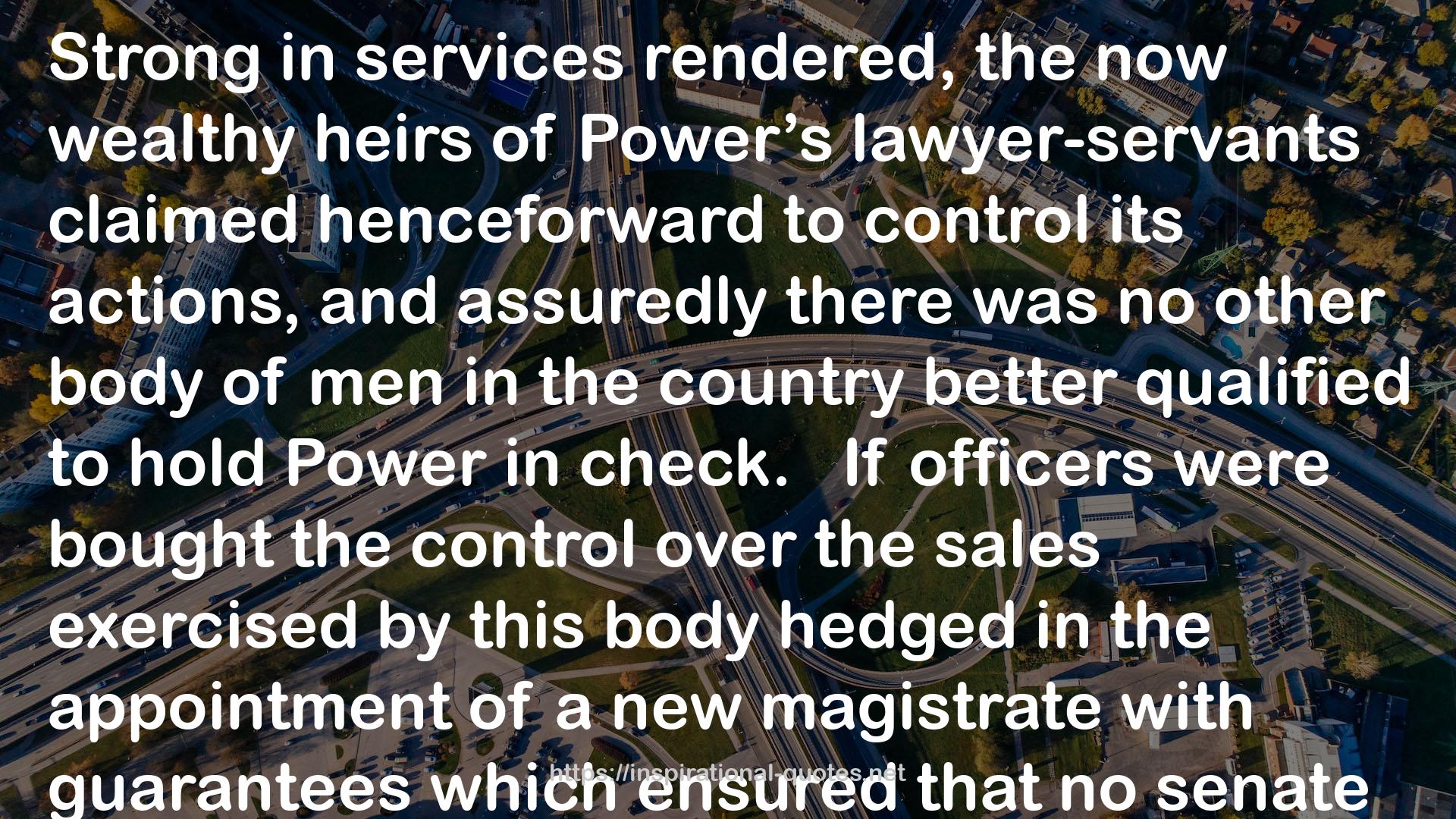" Strong in services rendered, the now wealthy heirs of Power’s lawyer-servants claimed henceforward to control its actions, and assuredly there was no other body of men in the country better qualified to hold Power in check.
If officers were bought the control over the sales exercised by this body hedged in the appointment of a new magistrate with guarantees which ensured that no senate was ever recruited better.
If the members of the Parliament were not elected by the public, they deserved on that account more of the public confidence, as being less it's flatterers by design than its champions by principle. Taken as a whole, they formed a weightier and more capable body of men than those of the British Parliament. Was it right, then, for the monarchy to accept and sanction this counter-Power? Or did its dignity demand that it react against the pretension of Parliament? That was a policy of one party, which called itself Richelieu’s heir and it was in fact, led by d’Aiguillon, a great-nephew of the great Cardinal. But if the need was to smash now this aristocracy of the robe and extend that the royal authority even further, it had to be done as in former days to the plaudits of the common people and by employing a new set of plebeians against the present wearers of periwigs. Mirabeau saw as much, but that d’Aiguillon’s faction were blind to it.
That faction consisted of nobles who had been more or less plucked by the monarchial Power and were now getting new feathers by installing themselves into wealth-giving apparatus of state which had been built by the plebeian clerks. Finding that offices were now of greater value than manors. They fell to on the offices. Finding that the bulk of the feudal dues had been diverted into the coffers of the state, they put their hands in them. And, occupying every place and obstructing every avenue leading to Power, they succeeded in weakening it both by their incapacity and by their feeble efforts to prevent it from attracting, as formerly, to its banners and the aspirations of the common people.
In this way the men who should have served the state, finding themselves discarded, turned Jacobin. In the cold shades of a parliamentary opposition, which, if it had been accepted, would have transformed the absolute monarchy into a limited one, a plebeian elite champed at the bit; had it been admitted to office, it would have extended even further the centralizing power of the throne. So much was it part of its nature to serve the royal authority that it was to ensure its continuance even when there was no king. "
― Bertrand De Jouvenel , On Power: The Natural History of Its Growth
